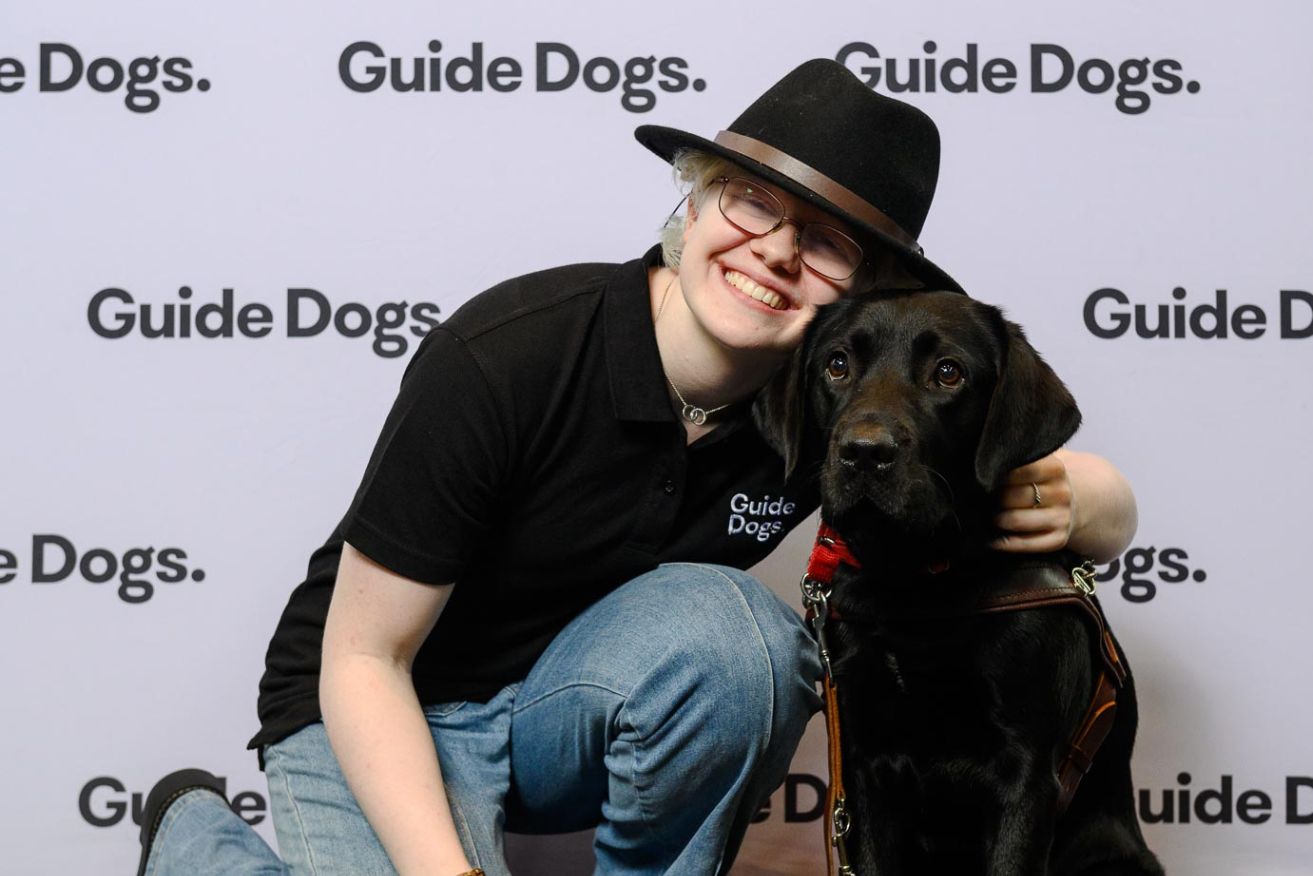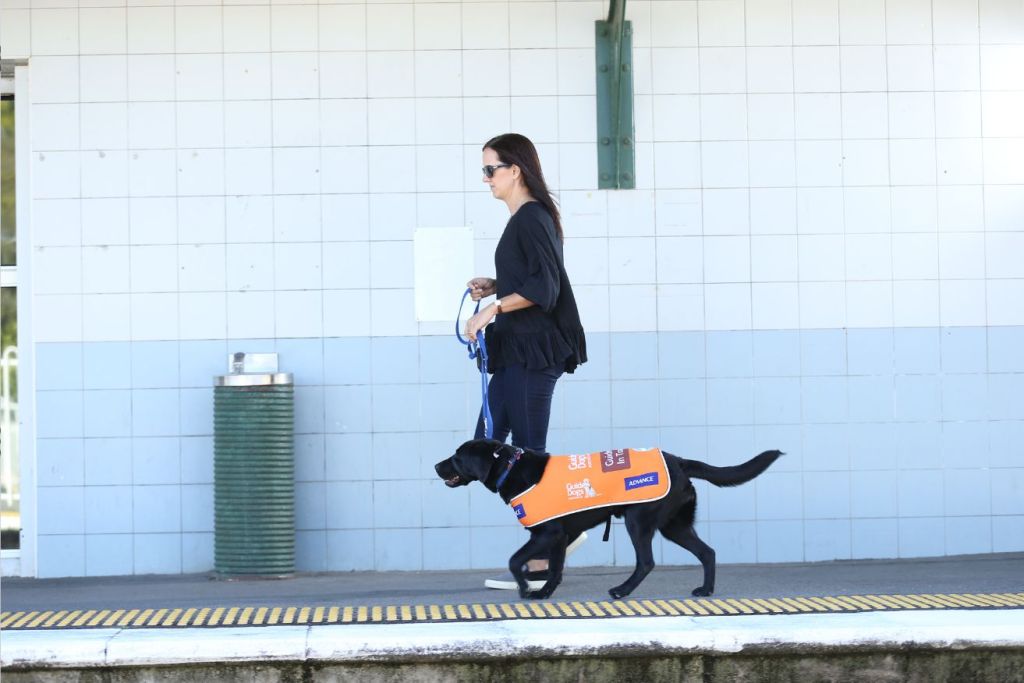‘Most just drive past’: Poor treatment of guide dog handlers under scrutiny


Since getting her guide dog, Quinlan, Zara Perry has enjoyed a new-found freedom. Photo: Zara Perry
Ever since Sydney student Zara Perry, 18, was paired with her guide dog Quinlan, she has had several Ubers and taxis either refuse to drive them, or just drive straight past.
For Perry, a person living with low vision, having Quinlan by her side has helped her navigate life more easily and give her the independence she wanted after leaving school.
“He has really enabled me to partake in day-to-day life and activities that everyone else can,” she said.
“That being said, since we got matched, I have faced countless access refusals [with taxis and rideshares] with Quinlan despite his legal right to travel freely through the world.”
Sadly, Perry isn’t alone.
A recent EY Sweeney report commissioned by Guide Dogs Australia found 46 per cent of people living with low vision and blindness have experienced refusal with a taxi or rideshare company in the past two years.
Additionally, more than one-third say their taxi or rideshare was cancelled and 15 per cent say they were ridiculed or discriminated against.
“Guide dogs aren’t the problem in themselves, they’re actually the thing that amplifies our ability to be independent and those mobility aids provide us with the benefit,” she told TND.
“It’s the lack of awareness and the ignorance, whether deliberate in some cases or just purely because people haven’t educated themselves on access rights about the benefit.”

In the past 24 months, 46 per cent of people with low vision or blindness experienced a refusal with a taxi or rideshare.
Guide dog breaking down barriers
Just recently, Perry had a negative experience when ordering a rideshare with Quinlan when she was making her way to her parents’ home, which is about a 15-minute trip.
“I was instantly faced with a barrage of questions including ‘You don’t look blind, are you sure he is a real guide dog?’. When we were finally granted a lift, the driver asked if I had a rug or blanket to put down for Quinlan,” she said.
“This isn’t even the worst case. Most just drive past us and cancel. These constant incidents just make me feel very isolated and excluded.”
When out in public, Perry feels the need to always be “switched on” and ready to explain Quinlan’s legal rights as a guide dog.
“I never know when we will get stopped, refused access or told I can’t do something,” she said.
“But the problem isn’t Quinlan. He is doing a brilliant job and already breaks down so many barriers for me. The issue is the lack of awareness of his rights to travel everywhere I can go.”
Facing resistance or having drivers refuse to give Perry a lift due to Quinlan has been exhausting.
She said she finds the rejection or refusal to be dehumanising or degrading.
“As deep and intense as that sounds, that’s the reality of it,” she said.
“It all comes down to the fact we have just as much right to be in the community and living as anyone else, even though we might sometimes need a bit of extra accommodation.”
The legal rights of guide dogs
Guide Dogs Australia reiterated that working dogs and their handlers have a legal right to “access to any event, business, or public premises, and in public transport or rideshare vehicles at all times”.
Wednesday [April 24] marks International Guide Dog Day and this year the International Guide Dog Federation and its Australian counterparts are highlighting the challenges handlers are facing globally.
“Guide dogs play an invaluable role in breaking down barriers for people living with low vision or blindness, enabling them to navigate and explore the world freely and safely,” Guide Dogs NSW/ACT CEO Dale Cleaver said.
“However, this is being constantly obstructed by the increase in access refusals, largely experienced in rideshare. Our community is facing these challenges on a daily basis.”
Cleaver added the organisation encourages people to learn more about the rights and advocate for a more welcoming world for those with low vision or blindness, not just on a day of celebration, but every day.








